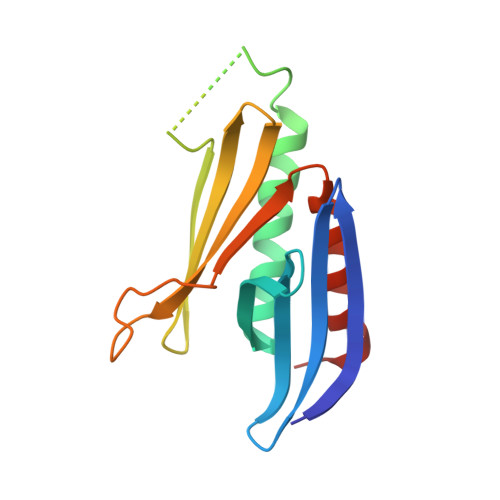PURA syndrome-causing mutations impair PUR-domain integrity and affect P-body association.
Proske, M., Janowski, R., Bacher, S., Kang, H.S., Monecke, T., Koehler, T., Hutten, S., Tretter, J., Crois, A., Molitor, L., Varela-Rial, A., Fino, R., Donati, E., De Fabritiis, G., Dormann, D., Sattler, M., Niessing, D.(2024) Elife 13
- PubMed: 38655849
- DOI: https://doi.org/10.7554/eLife.93561
- Primary Citation of Related Structures:
8CHT, 8CHU, 8CHV, 8CHW - PubMed Abstract:
Mutations in the human PURA gene cause the neurodevelopmental PURA syndrome. In contrast to several other monogenetic disorders, almost all reported mutations in this nucleic acid-binding protein result in the full disease penetrance. In this study, we observed that patient mutations across PURA impair its previously reported co-localization with processing bodies. These mutations either destroyed the folding integrity, RNA binding, or dimerization of PURA. We also solved the crystal structures of the N- and C-terminal PUR domains of human PURA and combined them with molecular dynamics simulations and nuclear magnetic resonance measurements. The observed unusually high dynamics and structural promiscuity of PURA indicated that this protein is particularly susceptible to mutations impairing its structural integrity. It offers an explanation why even conservative mutations across PURA result in the full penetrance of symptoms in patients with PURA syndrome.
- Institute of Structural Biology, Molecular Targets and Therapeutics Center, Helmholtz Munich, Neuherberg, Germany.
Organizational Affiliation:


















